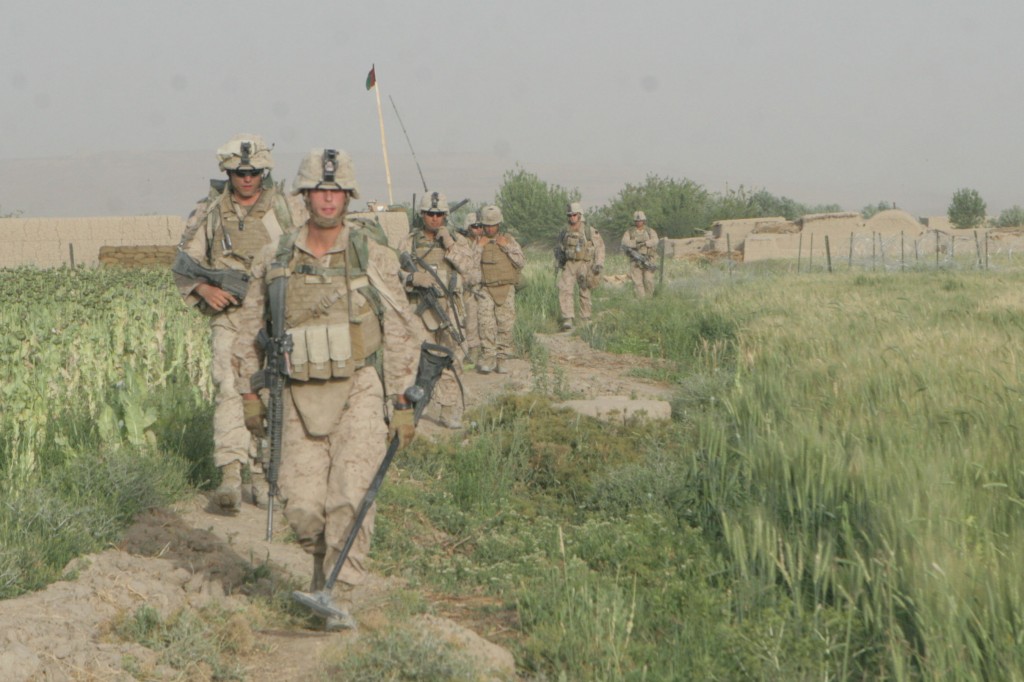The New Marine Corps Commandant?
BY Herschel SmithFrom Greg Jaffe at The Washington Post:
In a major break with tradition, Defense Secretary Robert M. Gates is planning to recommend that the president select a career aviator as the next commandant of the Marine Corps, a military official said Monday night.
If nominated and confirmed, Gen. James F. Amos would be the first Marine commandant with a background as a jet pilot — at a time when the Corps is fighting a ground-dominated war in Afghanistan — and his selection reasserts Gates’s willingness to shake up established service bureaucracies.
Amos, who is the service’s assistant commandant, would also become the first Marine general promoted from that position to the Corps’ top job. He served in Iraq in the early days of that conflict, but he has not led troops in Afghanistan. He has relatively less experience in waging counterinsurgency warfare than other candidates considered for the job.
Gates has said that, in selecting the commandant, he wanted someone who would help the Marine Corps chart a course beyond the current wars. In both Iraq and Afghanistan, the Marine Corps has taken on the role of a second land Army and moved away from its amphibious roots.
Gates has expressed particular concern about how the Marines would continue to attack from the sea as increasingly lethal cruise missiles push Navy ships farther from the coastline.
“What differentiates [the Marine Corps] from the Army?” Gates asked in a speech this year. “We will always have a Marine Corps. But the question is, how do you define the mission post-Iraq, post-Afghanistan? And that’s the intellectual effort that I think the next commandant has to undertake.”
Amos has developed a reputation among Marines as an innovative thinker about future combat, said military officials. As the Corps’ assistant commandant, he has also been a passionate advocate for finding additional resources to treat Marines diagnosed with post-traumatic stress disorder and traumatic brain injury.
In choosing Amos for commandant, Gates passed over Gen. James N. Mattis, who is widely considered one of the military’s best minds when it comes to waging war on insurgents.
Commandant Conway’s push towards the classical view of ship to shore operations to perform forcible entry is well known for its reliance on sea-based vehicles, and my opposition to this is well documented.
I do not now and have never advocated that the Marine Corps jettison completely their notion of littoral readiness and expeditionary warfare capabilities, but I have strongly advocated more support for the missions we have at hand.
Finally, it occurs to me that the debate is unnecessary. While Conway has famously said that the Corps is getting too heavy, his program relies on the extremely heavy Expeditionary Fighting Vehicle, that behemoth that is being designed and tested because we want forcible entry capabilities – against who, I frankly don’t know.
If it is a failing state or near failing state, no one needs the capabilities of the EFV. If it is a legitimate near peer enemy or second world state, then the casualties sustained from an actual land invasion would be enormous. Giving the enemy a chance to mine a beach, build bunkers, arm its army with missiles, and deploy air power, an infantry battalion would be dead within minutes. 1000 Marines – dead, along with the sinking of an Amphibious Assault Dock and its associated EFVs.
No one has yet given me a legitimate enemy who needs to be attacked by an EFV. On the other hand, I have strongly recommended the retooling of the expeditionary concept to rely much more heavily on air power and the air-ground task force concept. It would save money, create a lighter and more mobile Marine Corps (with Amphibious Assault Docks ferrying around more helicopters rather than LCACs), and better enable the Marines to perform multiple missions. I have also recommended an entirely new generation of Marine Corps helicopters.
There is no end to those who continue to press for this concept, both inside and outside the Corps.
“The United States’ Marine Corps has been conducting amphibious operations for 200 years. It’s a unique capability and there is no analytical basis for arguing that capability won’t be needed in the future,” said Loren Thompson, a defense analyst for the Lexington Institute. “Everyone we are likely to fight in the future is going to be close to the sea … like Iran, like North Korea, like Vietnam, like almost any place you can mention other than Afghanistan.” And he added: “If the EFV is canceled, many marines will die in the future for lack of an adequate vehicle.”
This is simply a scare-tactic, and it plays both ends against the middle. If we do ship to shore operations in sea-based vehicles, whether LCACs, the older Amphibious Assault Vehicles, or the newer and much more expensive EFVs, many Marines will die – period. There is no vehicle adequate to defend against shore to ship missiles, mined beaches, and emplaced artillery. Exactly why the U.S. Marine Corps believes we would actually be attacking a near-peer nation-state with tactics that parallel the landings in the South Pacific is an enigma. Thousands of Marine would perish in such a foolish assault.
Does this mean that ship to shore operations are finished? Not hardly. As I have argued repeatedly, the initial assault must be preceded by massive use of air power, with the assault being done via air. Is the Phrog really finished, or should we leave in place a helicopter from which Marines can fast rope (they can’t fast rope from the deck of a V-22 Osprey)? Or, as I have recommended, should the Marines be investing in a new fleet of helicopters, both transport and attack? Once the beachhead has been taken and the area secured, the Navy can transport the heavier vehicles to shore under the protection of the Marines.
The bigger question is this: does this appointment mean that Commandant Conway’s vision is being amended to one that is more air-based, as I have recommended? Does the Pentagon read The Captain’s Journal?







